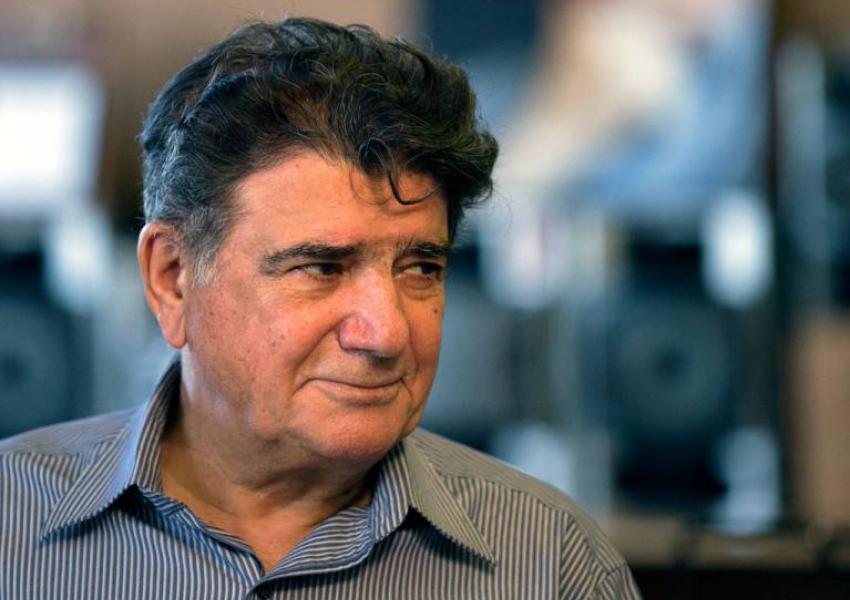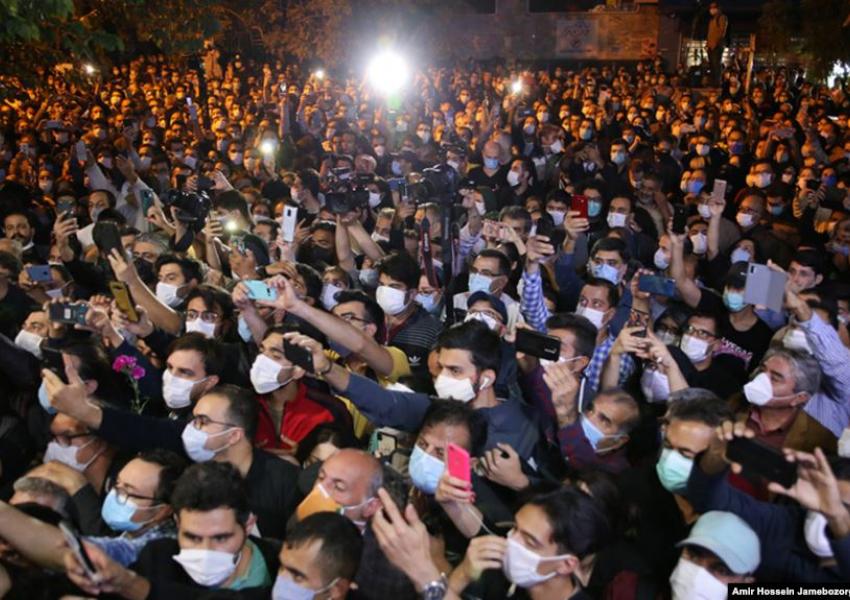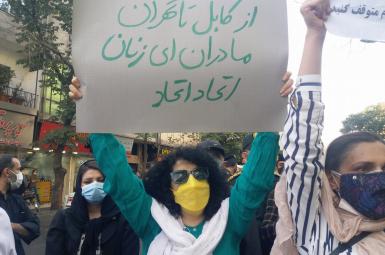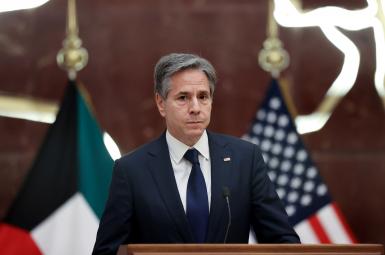
Iranians Mourn Shajarian, The ‘Dawn Bird’ Who Sang For Freedom
Maestro Mohammad Reza Shajarian, one of Iran’s most well-known musicians and greatest classical singers, passed away in hospital in Tehran on Thursday, October 8, aged 80, after a long battle with cancer.
Outside the hospital, people who had gathered to pay homage began chanting, “IRIB, our shame, our shame,” referring to a ten-year ban on Shajarian by the state broadcaster. Iran International Television reported that videos posted to social media showed anti-riot police confronting mourners.
Earlier, those assembled had joined in a spontaneous chorus of ‘Morgh-e Sahar’ [‘The dawn bird’], an ode to freedom that is one of Shajarian’s best-loved songs.
Iranian journalist Mohammad Mossaed tweeted: “They spent billions to destroy him, but everyone loved him even more, as he stood by the people.” Another journalist Kayvan Hosseini said his was passing was “a personal loss for every Iranian.”
The mood reflected a decade in which Shajarian was banned from IRIB following his stance following the disputed 2009 presidential election when President Mahmoud Ahmadinejad was announced the winner and millions of Iranians came out to protest what they believed was a rigged result.
People gathered outside the hospital singing and chanting

After Shajarian was filmed joining chants of “Death to the dictator” while driving in a busy Tehran street, the state broadcaster banned the singer from radio and TV, even dropping ‘Rabbana,’ a Shajarian song traditionally broadcast every sunset during the fasting month of Ramadan.
Shajarian, however, was not silenced. “I will sing only for the insignificant people,” he announced, referring to Ahmadinejad’s description of protestors as “insignificant.” As the crackdown on protesters escalated, Shajarian released the song ‘Put down your gun,’ calling on security forces not to open fire.
Deprived of the joy of appearing in Iran before the audiences he loved, Shajarian’s public appearances were limited to concerts in the United States and Europe.
Nonetheless, during the past week, with Shajarian taken to hospital for the last time, IRIB has occasionally remembered him. Oddly, state television announced his death a few days ago while Shajarian was still alive, and when social media quoted his family members who said he was alive, the national broadcaster refused to deny its previous report.
On Thursday, in announcing news of Shajarian’s passing, the state broadcaster showed his pictures with a part of his orchestra, even showing a few musical instruments, which are rarely displayed on TV.
Shajarian was politically active even before the Islamic revolution. He and other musicians refused to go to Russia for a pre-arranged concert that was part of a joint cultural program with the Iranian government. In a letter to the head of the Iranian TV in September 1978, Shajarian and other artists said that they could not perform in Moscow while the nation mourned the deaths of demonstrators shot dead by soldiers in Tehran, which was under martial law.
Later, just a few weeks before the 1979 revolution, Shajarian sang a popular song, ‘Baradar Gharghe khouneh’ [‘My brother is swimming in his blood’], a lament for young men killed during the protests leading up to the fall of the Shah. Soon after the revolution, Shajarian became disillusioned with the direction of the Islamic Republic, as Amir Ebtehaj, the best-known lyricist of revolutionary songs was first jailed and then went into exile.
After nearly a decade of relative quiet, Shajarian began a new round of activity during which he composed and sang some of his most memorable songs including ‘Sarv-e Chaman’ [‘The strolling cedar’] and ‘Morgh-e Sahar.’
Following his death, both President Hassan Rouhani, who used his songs in his election campaigns, and Foreign Minister Mohammad Javad Zarif condoled expressed condolences.
In his tweet, Zarif linked to ‘Morgh-e Sahar’.
But Rouhani’s government never lifted the effective ban on Shajarian. Less than two weeks ago, the head of the Tehran city council and the city’s mayor rejected a proposal to name a street after the singer. “The authorities do not like the idea,” noted the major.
Shajarian will be buried in Mashhad, north-east Iran, the city of his birth.








